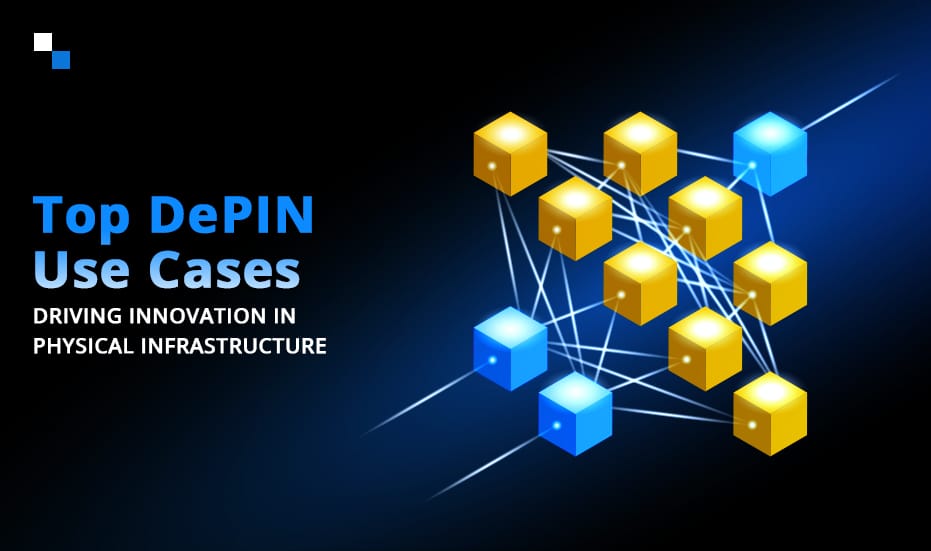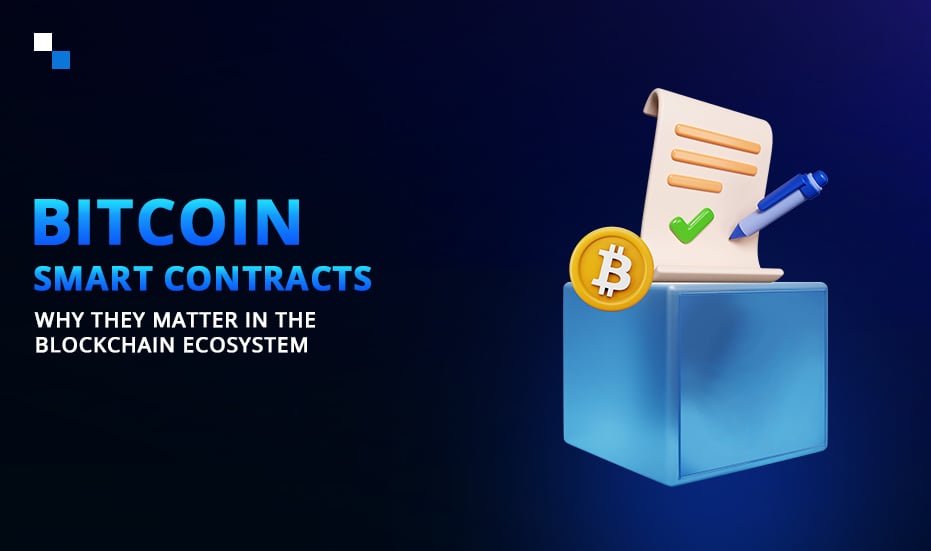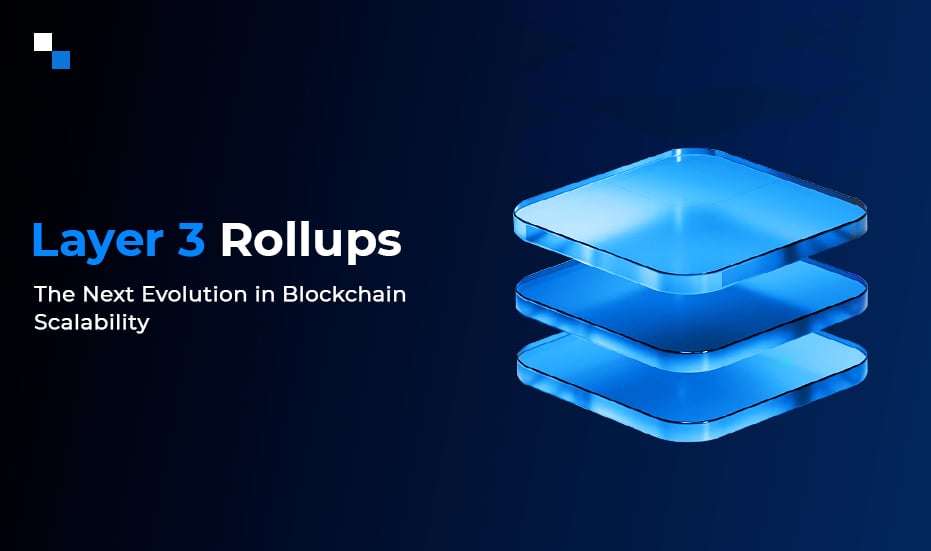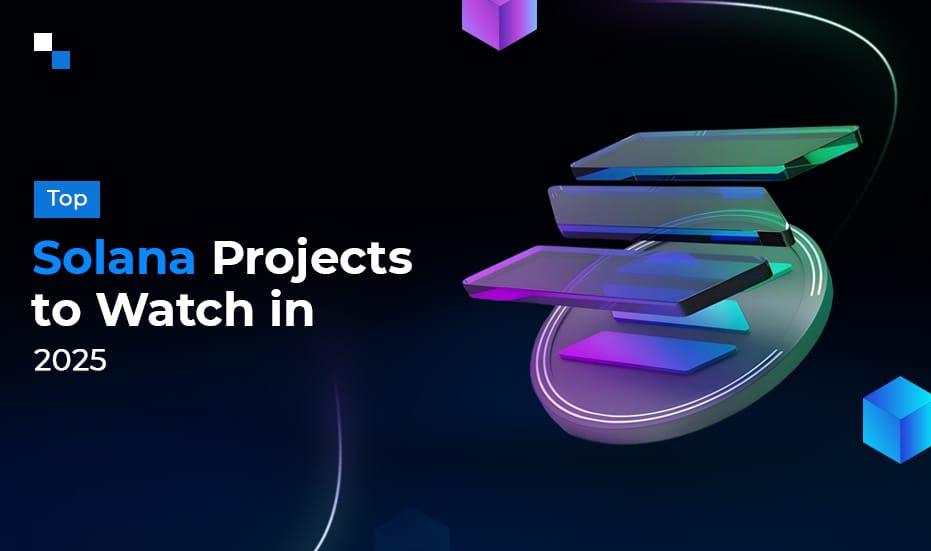
How DApp Development is Revolutionizing Industries Far and Wide
December 24, 2024
The Ultimate Guide to Telegram Crypto Wallet Development in 2025
December 25, 2024Imagine a ride-sharing service platform that involves driver contributing their physical resources (vehicles) and services (chauffeuring) to earn money. The platform helps connect drivers with a wide user base while drivers are subject to platform policies, including commission fees, fare pricing, and operational guidelines, limiting their autonomy. The platform also gives rewards like money or better visibility to attract drivers, however, it still controls how drivers use their cars and services while they’re part of the system. To overcome the limitations of this system, several blockchain-based projects have been introduced, with DePIN (Decentralized Physical Infrastructure Networks) being one of the most promising solutions.
The DePIN model allows drivers to connect directly with users without intermediaries, earn fair rewards in the form of cryptocurrency tokens, and retain full control over their resources. This is just one example of DePIN. In this blog, we explore various DePIN use cases, highlighting its transformative influence on businesses and industries.
What is DePIN?
DePIN is a blockchain-based model that bridges the physical world with the digital world. In this decentralized network, contributors offer physical resources, such as equipment or services, and in return, they earn rewards in the form of cryptocurrency or tokens based on their contributions.
DePIN creates a peer-to-peer network that enables on-demand access without the need for the central authority or providers. DePIN solutions leverage blockchain to ensure, efficiency, and security across the network.
Top 6 DePIN Use Cases with Real-World Examples
The following are the top DePIN use cases with real-world examples highlighting how this decentralized model can transform various industries.
1. Energy Generation and Distribution
Use Case: Decentralized Energy Grids
Traditional energy grids involve centralized authorities that monitor and control the production and distribution process. DePIN solutions encourage the decentralization of power grids and revolutionize the way energy is generated, stored, and distributed in the network. Decentralized energy grids enable local energy production, storage, and exchange among distributors or users, peer-to-peer. Users with renewable energy sources can sell excess power back to the grid or directly to neighbors. DePIN development not only reduces the need for large, centralized power stations but also fosters the adoption of green energy.
Real-World Example: Powerledger
Powerledger is a blockchain-enabled software platform designed for the decentralized trading of renewable energy and environmental commodities. Powerledger develops software solutions for tracking, tracing, and trading renewable energy. It fuels the motive of democratization of power for a sustainable future.
2. Telecommunications Infrastructure
Use Case: Decentralized 5G Networks
Telecommunication networks, especially 5G, demand significant investment in infrastructure, including the installation of towers, cables, and base stations. DePIN helps create decentralized 5G networks. Instead of relying on a single, centralized telecom provider to own and maintain all the infrastructure, DePIN development allows individuals or organizations to own and operate small, distributed base stations.
Real-World Example: Helium Network
Founded in 2019, the Helium Network is a decentralized wireless network that leverages blockchain to connect users and devices to the Internet. Participants who deploy wireless hardware for the network are incentivized with HNT (Helium’s native token) as a reward for enhancing and expanding the network’s coverage. It is known as “The People’s Network” because it is owned & operated by a community of users rather than a centralized entity.
3. Data Storage and Computing Power
Use Case: Decentralized Cloud Storage
Traditional cloud storage services are centralized, with data hosted on servers owned by companies like Google, Amazon, and Microsoft. DePIN creates decentralized cloud storage solutions, where individuals or organizations can rent out unused storage space and computing power. DePIN development offers increased security, transparency, and control over data, as it eliminates the risk of single points of failure.
Real-World Example: Filecoin
Filecoin is a decentralized, peer-to-peer storage network that turns cloud storage into an algorithmic market. This revolutionary solution is developed as an innovative decentralized alternative to traditional cloud storage providers. It builds a decentralized data storage marketplace, protocol, and cryptocurrency (FIL) that makes the web more secure and efficient.
4. Decentralized Healthcare
Use Case: Decentralized Health Records
Healthcare data is often stored in centralized databases, making it vulnerable to data breaches and fraud. DePIN solutions create decentralized health records, where patients have control over their data and can grant access to healthcare providers as needed. This approach enhances privacy, security, and transparency in the healthcare system.
Real-World Example– HealthBlocks
Applications like Healthblocks, a blockchain-based ecosystem, incentivize users to share specific health-related information, allowing healthcare companies and workers to drive advancements. Users can also connect their fitness devices to the application to track and monitor their fitness goals. Upon completing these health goals, users earn rewards in the form of HEALTH tokens.
5. Decentralized Mobility or Transportation Networks
Use Case: Autonomous Transportation
In the realm of transportation, DePIN solutions employ IoT devices and sensors to manage various aspects of the system, including vehicle tracking, route optimization, and network flow management. This decentralized approach facilitates real-time data collection and analysis, which results in reduced traffic congestion and enhanced safety measures. These networks decentralize control and promote a more resilient and adaptable transportation infrastructure.
Real-World Example: DIMO
DIMO is the open and secure mobility platform in the world that enables car drivers worldwide to make their vehicles smart and highly programmable. It uses decentralized networks that collect and share data to optimize transportation systems. It provides more control to vehicle owners over their data and builds a more transparent and efficient ecosystem.
6. Decentralized Weather Stations
Use Case: Weather Monitoring
DePIN deploys decentralized weather stations equipped with advanced sensors capable of gathering real-time weather data, such as temperature, humidity, and precipitation levels. Participants in this decentralized ecosystem contribute and maintain these devices in exchange for token rewards. The DePIN development approach incentivizes participation and also helps build a collaborative and transparent weather data network.
Real-World Example: WeatherXM
WeatherXM is a prime real-world example of one of the DePIN use cases. WeatherXM builds a community-powered weather network that rewards $WXM tokens to weather station owners and provides accurate weather services to businesses, individuals, & research organizations. WeatherXM’s incentivization feature empowers communities to play a crucial role in advancing weather services, enhancing predictions, and addressing the increasing challenges posed by climate change.

Closing Thoughts
DePIN is not just a buzzword anymore; it has emerged as a transformative force that decentralizes the physical infrastructure, such as energy grids, data centers, and communication networks, to avoid centralized control and offer more transparency, efficiency, and control for the users.
Several DePIN use cases have highlighted how industries, no matter whether it is transportation, healthcare, or energy, can be free from traditional centralized models. Leveraging the power of DePIN would be a smart move to stay ahead in the crypto space and in this race, Antier can be your ultimate digital partner.
Antier, a renowned blockchain development company, understands how DePIN works and how to harness its potential to create smarter, more sustainable infrastructure. From ideation and design to full-scale development and ongoing support, our comprehensive DePIN development services are customized to each client’s unique needs. Whether it’s designing a robust DePIN framework or providing continuous support, Antier ensures you receive the state-of-the-art solution that can drive growth and make way for a new era of decentralized possibilities.



